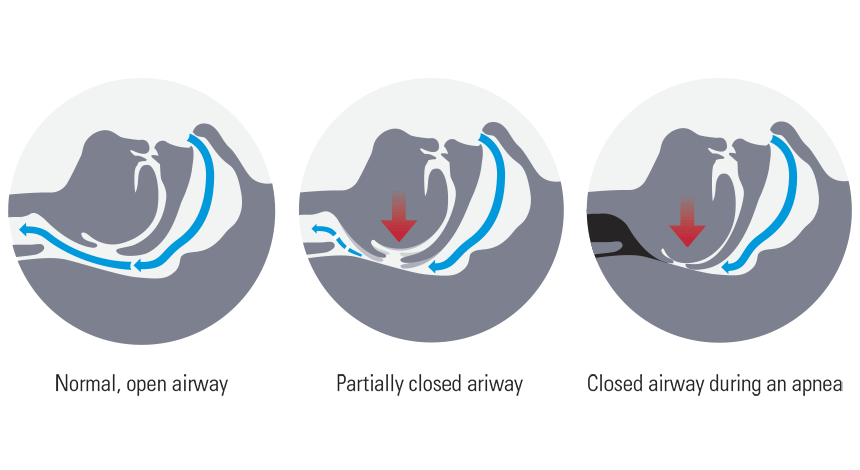What causes snoring is a question that can be answered multiple ways. From an anatomical standpoint, snoring is caused by a partially closed upper airway (the nose and throat).
Everyone’s neck muscles relax during sleep, but sometimes they relax so much that the upper airway partly closes and becomes too narrow for enough air to travel through to the lungs. When this happens, it means that a person isn’t taking in enough oxygen for the body to perform its important functions. The brain then sends a signal to the body to wake up to get the oxygen it needs, likely resulting in the person waking up throughout the night without realizing it.
Why do people snore?
Why do some people snore and others don’t? Those who have enlarged tonsils, an enlarged tongue or excess weight around the neck are more prone to snoring. And structural reasons like the shape of one’s nose or jaw can also cause snoring. The snoring sound itself is a result of the narrowing of a person’s airway, which causes a throat vibration and the snoring sound. No matter the reason, 40% of normal adults snore regularly,1 whether they realize it or not.
Snoring and sleep apnea
Snoring and sleep apnea are linked at an alarming rate – 1 in 3 men and approximately 1 in 5 women who are habitual snorers suffer from some degree of obstructive sleep apnea.2 Sleep apnea prevents you from getting the healthy sleep you need to lead a refreshed, energetic life. It has also been linked to a number of other health conditions like type 2 diabetes, obesity, heart failure and hypertension. So regardless of what is specifically causing snoring for you, if you snore — or if you suspect you snore — consider it a sign that something might not be right.
- Ohayon MM et al. Snoring and breathing pauses during sleep: telephone interview survey of a United Kingdom population sample. BMJ. 1997;314:860–3
- Young T et al. The occurrence of sleep-disordered breathing among middle-aged adults. N Engl J Med 1993; 328(17):1230–5





